Variable properties
The variable properties are introduced by the Scene Editor to be used by the Outline view and the scene compiler.
Name property
This name is auto generated by the editor:
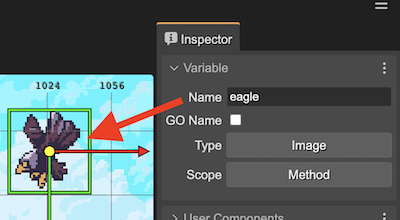
It is used as the label in the Outline view:
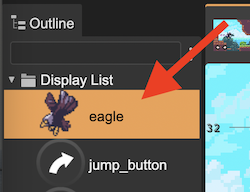
And as a variable name in the generated code:

Display Name property
You can change the default text of the game object in the Outline view by setting the Display Name property. This display name is used only by the UI.
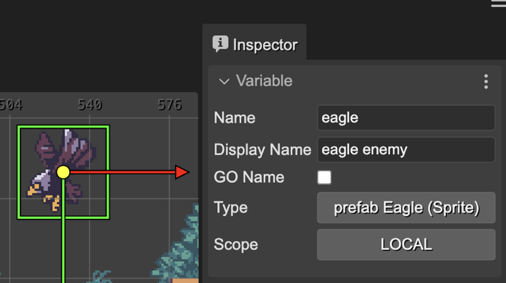

Game Object Name property
The GO Name property indicates if the previous Name property’s value will be set as value to the Game Object’s name property.
Check the GO Name property:
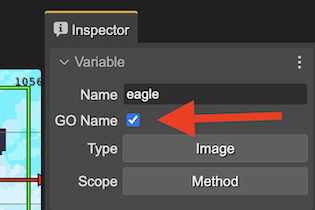
For generating the name value in code:

Type property
This property shows the type of the selected object. In the case of prefabs, it shows the name of the prefab and the Phaser type that is the root of the prefab. For example: prefab PlayButton (Image).
Also, you can click on the type name to change the type of the selected objects. It opens the Replace Type dialog:
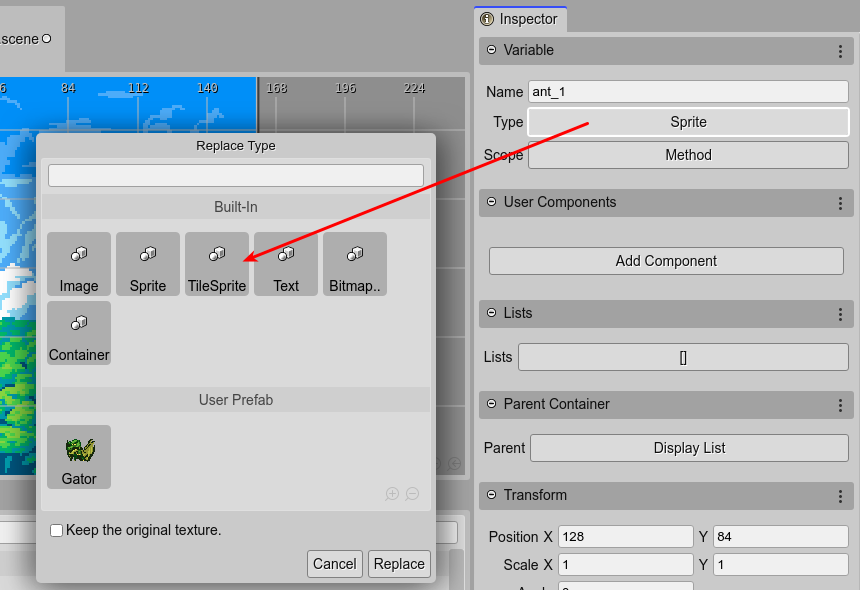
Scope property
The scope property refers to the lexical scope of the variable that references the object. The possible values are:
LOCAL: The variable is local to the creation of the object. It is optional, the compiler may generate it or not according if the object properties are modified.METHOD: The variable is available in the method’s scope.CLASS: The variable is assigned to a private class field. The object is accessible from any other method of the class.PUBLIC: Like theCLASSscope, but it is referenced by a public field. The object is accessible to any client of the class.NESTED_PREFAB: LikePUBLIC, but the object is also available as nested prefab instance in the Scene Editor. It means, you can change its properties using the scene editor.
By default, the scope is set to LOCAL. In previous versions of the editor, the default value was METHOD, but now we are using METHOD to ensuring the scene compiler generates a variable for the object.